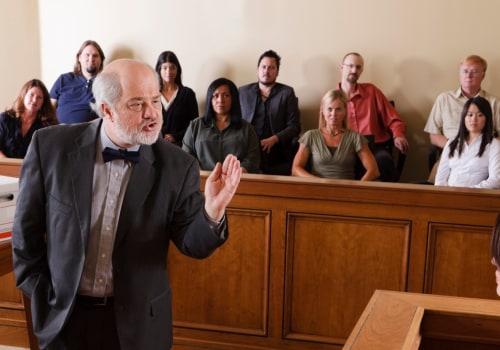Managing evidence · Navigate while maintaining integrity · Comply with disclosure standards · Ensure fairness during information exchange. The defense attorney has a duty to protect confidentiality and attorney-client privilege. The defense attorney must assert the client's confidentiality and privilege because the client does not know how to do so. Confidentiality and privilege are part of the Sixth Amendment right to effective legal assistance and the Fifth Amendment privilege against self-incrimination.
Confidentiality and privilege serve different purposes and have a different scope. Confidentiality is an ethical and moral requirement that attorneys must keep client secrets and matters private. The attorney-client privilege is an evidentiary privilege in the courtroom. Therefore, confidentiality is broader and encompasses much more than the attorney-client privilege.
Confidentiality prevents lawyers from talking about their clients with other people or even with each other, except to the extent necessary (and therefore implicitly authorized), for example, breaches of confidentiality have resulted in civil liability, discipline, and even disqualification in egregious cases. Secrecy between lawyer and client is based on the principle that full disclosure between lawyer and client is necessary for the proper functioning of the lawyer and, therefore, of the entire judicial system. The privilege between lawyer and client is based on the principle that full disclosure between lawyer and client is necessary for the proper functioning of the lawyer and, therefore, of the judicial system. Once charges have been filed, prosecutors must operate under more stringent ethical restrictions than defense attorneys.
Recognizing how defense strategies can affect communities underscores the complexity of ethical decision-making in criminal defense cases. California, where the Supreme Court suggested that a criminal defense attorney could testify about a client's competence in competition hearings. Defense attorneys and prosecutors navigate complex ethical scenarios as they fulfill their different roles within the judicial system. Defense attorneys defend the principle that everyone deserves legal representation regardless of their guilt.
One of the main ones is that defense attorneys have a role to play in the administration of justice and that role does not extend to the power to determine guilt or innocence, a power that lies solely with judges and juries. The client's use of a false name, in which the defense attorney knowingly participated, has resulted in defense attorneys being sanctioned. If the court asks the defense attorney about the background, the defense attorney can only claim that it is based on the presentation report. To protect sensitive client data, Boston criminal defense attorneys employ strict security measures, such as encrypted communication channels and strict access controls.
In addition, since defense attorneys are not present in grand jury proceedings, prosecutors must present evidence in such proceedings without creating subjective prejudice against the defendant. Defense attorneys don't need a computer science degree; they need strategy, control, and the right questions to challenge the illusion of digital certainty in court. Dispelling misconceptions and stereotypes about defense attorneys is essential to educating the public about the importance of legal representation for all individuals, including defendants of crimes. This problem arises when a criminal defense attorney knows that a client intends to commit perjury or that he has already committed perjury.
This comprehensive training program provides defense attorneys with a rigorous, science-backed approach to dismantling prosecution narratives, exposing unreliable testimony, and ensuring that jurors are properly informed about the complexities of memory, intoxication, and consent. First, defense attorneys have an obligation to zealously represent their clients, even those clients whom the lawyer considers guilty. Defense attorneys and the court have a duty to investigate the possibility of conflict in all cases of multiple representation.






